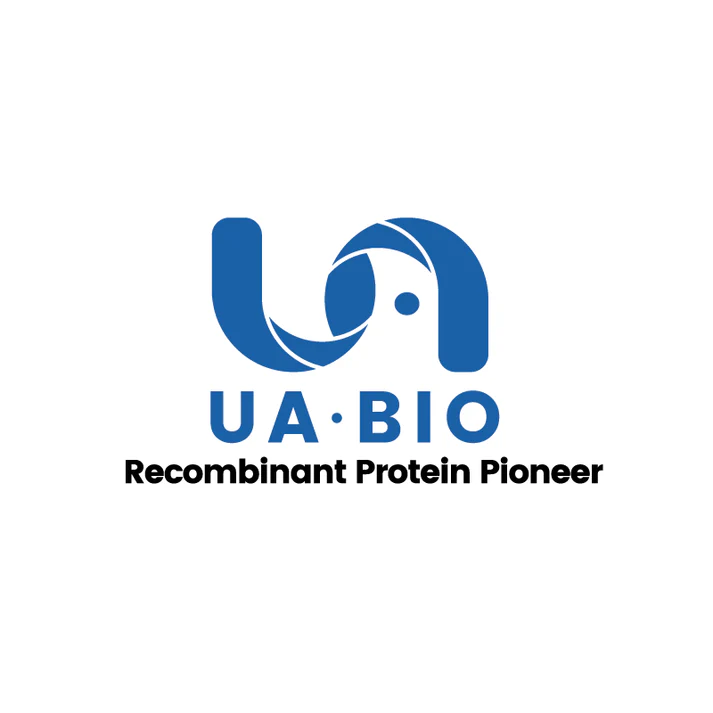Determination of the enzyme activity of Hot-Start Taq DNA polymerase.
A. Hot Start Taq DNA Polymerase is completely inhibited at 40℃. After adding appropriate primers and incubating at 40℃ for 15 minutes with a double-stranded DNA 5' overhang as a template, 20% non-denaturing polyacrylamide gel electrophoresis was performed. It can be seen from the figure that the ordinary Taq DNA Polymerase can undergo polymerization at 40℃, increasing the DNA molecular weight, while Hot Start Taq DNA Polymerase cannot catalyze polymerization at all, i.e., its enzyme activity is completely inhibited.
B. Hot Start Taq DNA Polymerase's activity is completely released under conventional PCR conditions, and the PCR amplification effect is completely consistent with that of Taq DNA Polymerase.
Product Details
Product Details
Product Specification
| Synonyms | Hot Start Taq DNA Polymerase |
| Expression System | E.coli |
| Molecular Weight | 138 kDa (Reducing) |
| Purity | >95% by SDS-PAGE |
| Tags & Cleavage sites | MBP&DDDK |
| Tag | His Tag, MBP Tag |
| Physical Appearance | Liquid |
| Storage Buffer | 20 mM Tris-HCl, 100 mM KCl, 1 mM DTT, 0.1 mM EDTA, 0.5% (v/v) Nonidet P40, 0.5% (v/v) Tween 20 and 50% (v/v) glycerol, pH 8.0@ 25°C |
| Stability & Storage | Store at -25 ~ -15℃ for 2 years |
| Reference | [1] Kellogg D E, Rybalkin I, Chen S, et al. TaqStart antibody(TM): 'Hot start' PCR facilitated by a neutralizing monoclonal antibody directed against Taq DNA polymerase[J].BioTechniques, 1994, 16(6):1134-1137. |
Background
Hot Start Taq DNA Polymerase is a hot-start Taq enzyme obtained by mixing Taq antibody and Taq DNA polymerase in a certain proportion, which has higher stability and detection rate. Based on the thermal stability of Taq antibody, Hot Start Taq DNA Polymerase can still maintain strict sealing at 45℃, so that non-specific amplification is inhibited during the mixed sample and system heating stage. When the reaction is maintained at 95℃ for more than 30 seconds, Taq antibody is inactivated, and the activity of Taq enzyme is completely released, ensuring that the PCR system has high amplification sensitivity and specificity. Hot Start Taq DNA Polymerase activation is not affected by factors such as buffer pH and ionic strength, and is suitable for various hot-start PCR and qPCR reactions based on Taq DNA polymerase. It is commonly used to amplify low-copy genes from complex templates (genome, cDNA), and is based on PCR/qPCR molecular diagnostic reagents using hot-start Taq enzyme.
Components
UA070096: 5 U/μL Hot Start Taq DNA Polymerase, Taq antibody, 20 mM Tris-HCl (pH 8.0@ 25°C), 100 mM KCl, 1 mM DTT, 0.1 mM EDTA, 0.5% (v/v) Nonidet P40, 0.5% (v/v) Tween 20 and 50% (v/v) glycerol
10* Reaction Buffer: 100mM Tris-HCl (pH9.0 @25℃), 500mM KCl, 1% Triton® X-100,15mM MgCl2。
Protocol
a. Dissolve and mix the various solutions required for the PCR reaction. Due to the hot start nature of the enzyme, reactions can be assembled on the bench at room temperature and transferred to a thermocycler. No separate activation step is required to release the antibody from the enzyme.
b. Refer to the table below to set up the PCR reaction system on the ice bath (if there are multiple similar PCR reactions, you can first prepare a large volume mixture containing water, buffer, dNTP, and Hot Start Taq DNA Polymerase, and then divide it into each PCR reaction tube. According to the situation, sometimes the mixture can include primers):
Component |
Volume |
Final Concentration |
10X PCR Buffer (with Mg2+) |
5 µL |
1 X |
dNTP mix, 10 mM each |
1 µL |
200 µM each |
10 µM Forward Primer |
1 µL |
0.2 µM (0.05–1 µM) |
10 µM Reverse Primer |
1 µL |
0.2 µM (0.05–1 µM) |
Template DNA |
variable |
10 pg-1 μg |
Hot Start Taq DNA Polymerase (5 U/µl) |
0.25 µL |
1.25 U/50 µl |
DEPC-treated Water |
Up to 50µL |
- |
Notes: Gently mix the reaction. Collect all liquid to the bottom of the tube by a quick spin if necessary. Overlay the sample with mineral oil if using a PCR machine without a heated lid.
c. Transfer PCR tubes from ice to a PCR machine with the block preheated to 95°C and begin thermocycling.
Thermocycling conditions for a routine PCR:
Step |
Temperature |
Time |
Number of Cycles |
1.Initial Denaturation |
95°C |
30 seconds |
1 cycle |
|
2.Denaturation 3.Annealing 4.Extension |
95°C 45–68°C 68°C |
15-30 seconds 15-60 seconds 1 minute/kb |
30 cycles
|
5. Final Extension |
68°C |
5 minutes |
1 cycle |
6.Soak |
4°C |
Indefinite |
1 cycle |
Guidelines
1. Since the PCR reaction is very sensitive and can amplify the target gene sequence more than 10 million times, please pay attention to avoid contamination of the small amount of DNA to be amplified when using Hot Start Taq Polymerase, and try to consider setting a blank control without a template to confirm whether there is contamination of the DNA to be amplified.
2. 2mM Mg2+ can meet the needs of most PCR amplification, and for some PCR, it can be adjusted to 2-4mM to ensure better amplification.
Unit Definition
Picture
Picture
Bioactivity


